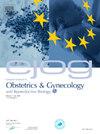Randomized controlled trial of 4.0 mg versus 0.4 mg folic acid supplementation: Follow-up of children at 1 year of age
IF 1.5
Q3 OBSTETRICS & GYNECOLOGY
European Journal of Obstetrics and Gynecology and Reproductive Biology: X
Pub Date : 2025-02-04
DOI:10.1016/j.eurox.2025.100370
引用次数: 0
Abstract
Objective and study design
This 1-year follow-up study reports the results on the health status, visits to the paediatrician and hospitalizations of children born from the women recruited in the main randomized controlled trial (RCT) that investigated the effect of periconception folic acid (FA) supplementation of 4.0 mg/day on reducing adverse reproductive outcomes.
Methods
The health status of livebirths was evaluated by a trained health care provider (HCP) through a phone interview with the paediatrician (at 1–3–12 months of age) and with the parents (at 12 months of age), using a structured data collection form.
Results
Information at 1 year of life could be obtained for 347/376 (92.3 %) newborns included in the original RCT. No statistically significant differences were observed between the two groups regarding weight, health problems, hospitalizations from birth to 1 year of life and developmental milestones, as well as accesses to the emergency ward and parents’worries. Breastfeeding differed significantly at 1, 3 and 12 months of life, with higher proportion of exclusive breastfeeding in the 4.0 mg FA Group.
Conclusion
The findings suggest that the periconception FA supplementation of 4.0 mg/day versus 0.4 mg/day, does not affect the health status and hospitalizations from birth to 1 year of life, as well as normal child’s developmental milestones at 1 year of life. The increase in exclusive breastfeeding in the 4.0 mg FA group needs further investigation.
求助全文
约1分钟内获得全文
求助全文
来源期刊

European Journal of Obstetrics and Gynecology and Reproductive Biology: X
Medicine-Obstetrics and Gynecology
CiteScore
2.20
自引率
0.00%
发文量
31
审稿时长
58 days
 求助内容:
求助内容: 应助结果提醒方式:
应助结果提醒方式:


